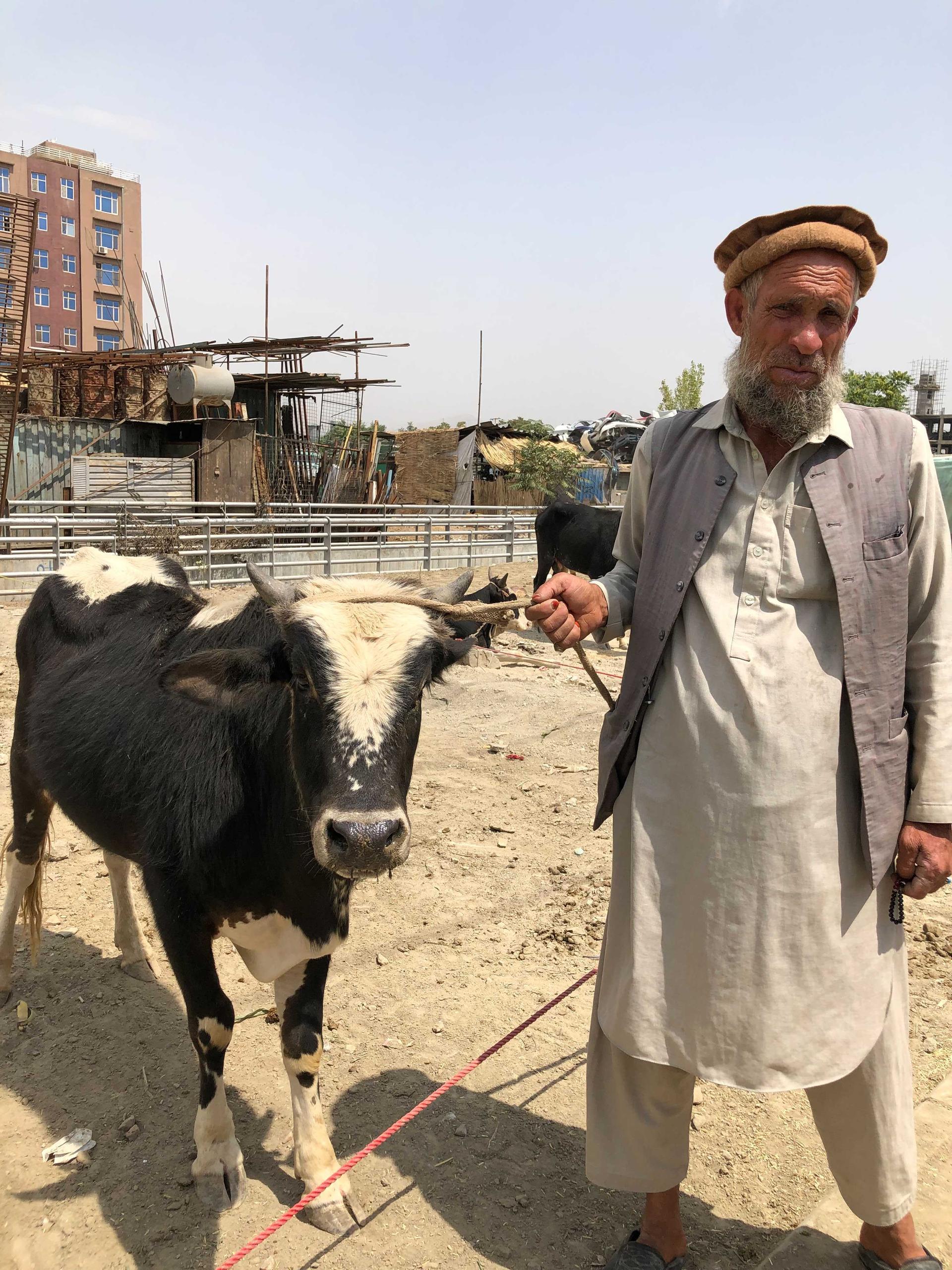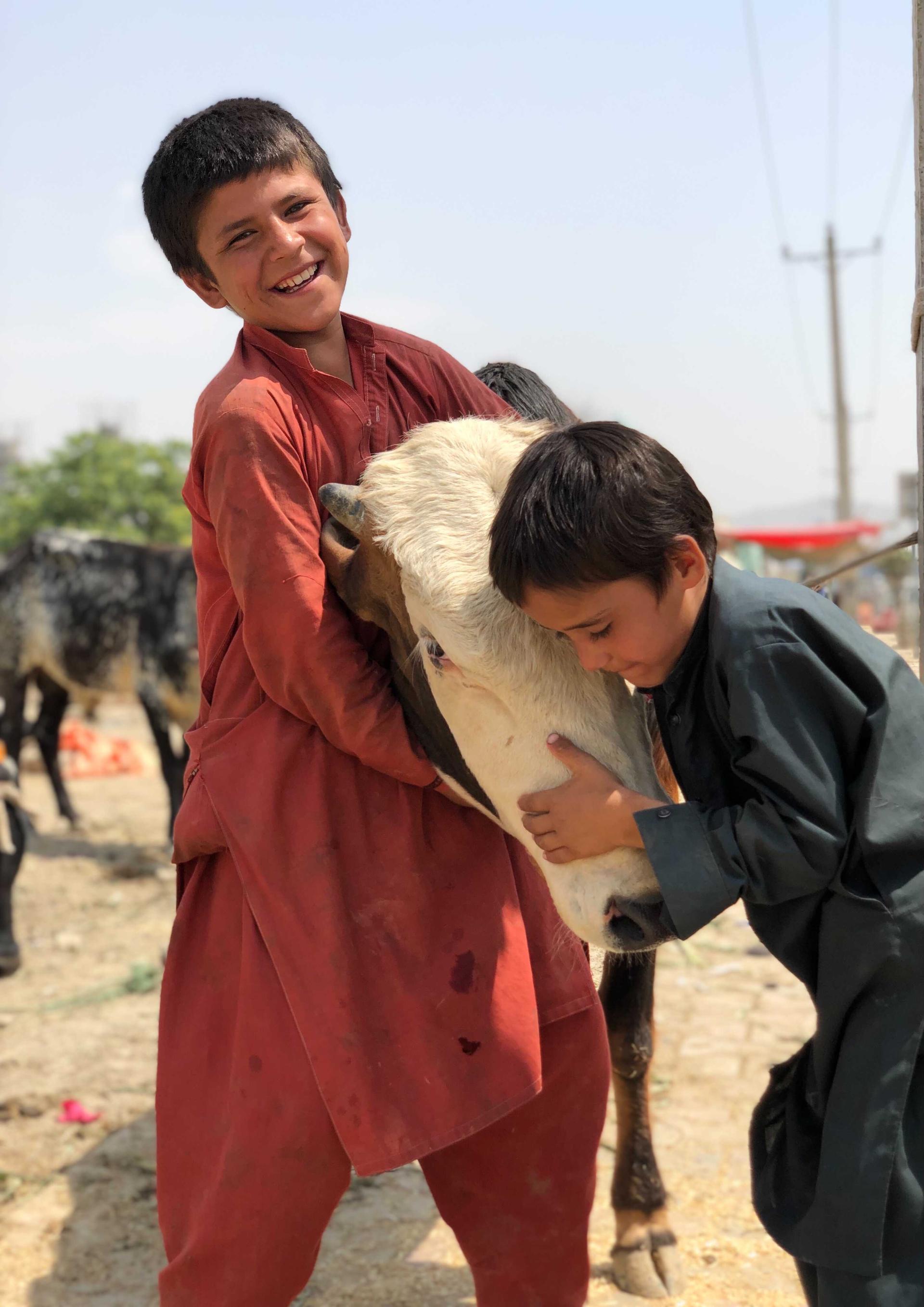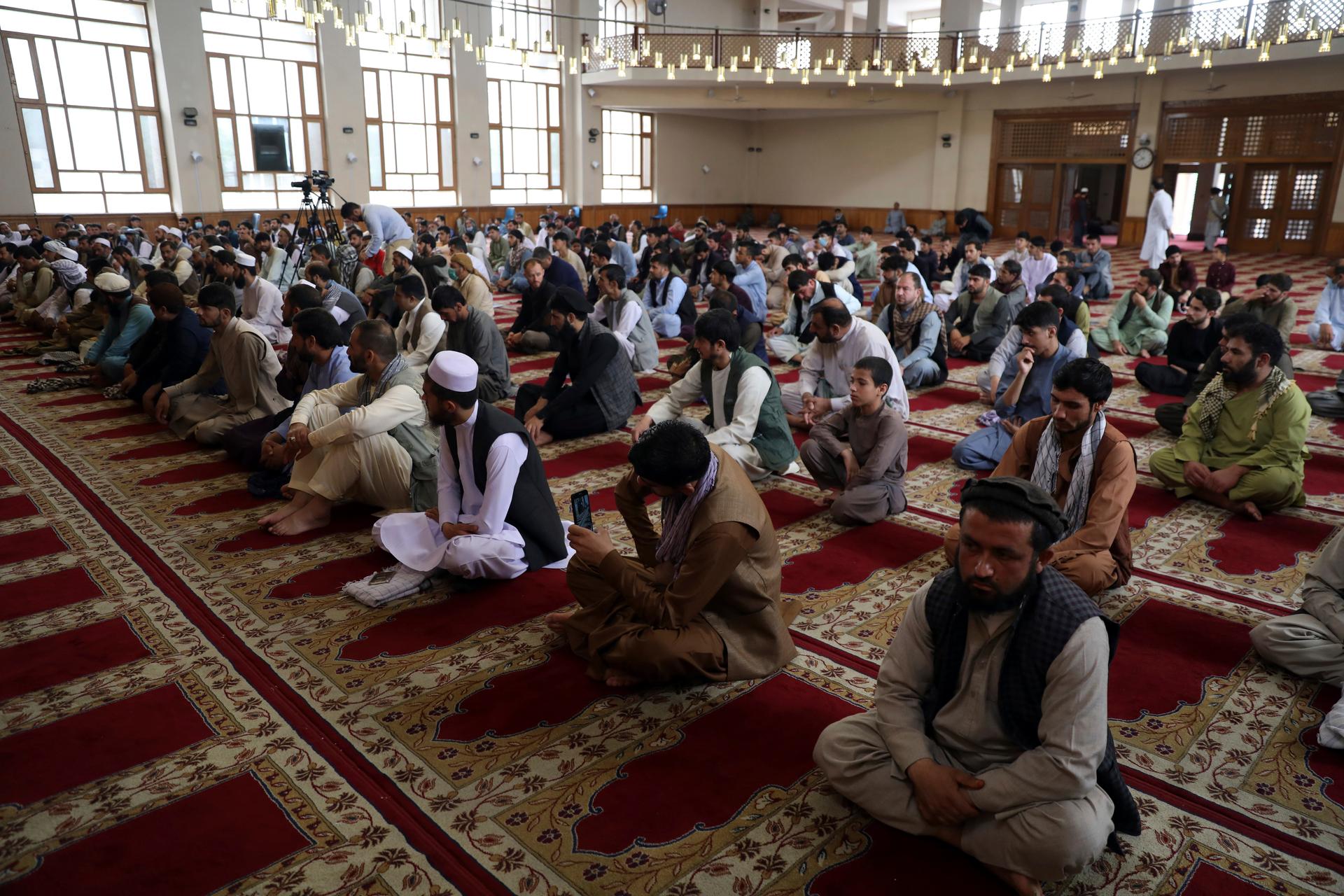Afghan President Ashraf Ghani was among those taking part in prayers outside the presidential palace in Kabul, Afghanistan, to mark the Muslim celebration of Eid al-Adha.
The group of officials was midprayer when several rockets landed close to the palace.
ISIS claimed the attack that comes as US and NATO troops leave Afghanistan — the withdrawal is more than 95% complete and the final US soldier will be gone by Aug. 31, President Joe Biden said in an address earlier this month.
Related: ‘This is the first time I am holding a gun’: Afghans take up arms to fight the Taliban
Many Afghans are worried about their war-ravaged country falling deeper into chaos and violence as foreign forces leave and the Taliban gains more territory on the ground. The militant group has already captured several districts and key border crossings with neighboring countries over the past weeks.
Afghan forces have complained about being left without reinforcements and supplies, often running low on food as the Taliban advanced. In many instances, Afghan troops surrendered rather than fight.
There’s no work, no money
About an hour after the rocket attack, people in Kabul were busy going about their day. Just a few minutes’ drive from where the rockets landed, an impromptu, open-air market was buzzing with customers.
Cows, sheep and goats are for sale here. And it’s especially busy because Muslim families usually sacrifice animals for the big holiday feast.
Sixty-five-year-old Khale Gol is selling a cow.
Life is miserable here, he says — there’s no work, no money.
Khale Gol raises cows in Helmand Province in the south. It’s easier and cheaper that way. Then, when it’s time for the Eid celebrations, he brings them here, to the capital, where he can sell them for a higher price.
A cow goes for $500 to $1,500, depending on its weight and health.

This year, Khale Gol says he had a lot of problems getting his animals to Kabul amid intense fighting between the Taliban and the Afghan security forces. Highways that connect provinces can be nothing short of a death trap.
Khale Gol says the Taliban fighters he saw along the way were heavily armed. They had AK-47s and rockets. They also made him pay taxes for the cow — taxes are a major source of revenue for the group.
Further down the market, Khanzadah, (many Afghans go by a single name), 19, says people don’t get a break from the fighting. He too, almost died getting his livestock from Helmand to Kabul. What kind of life is this, he asks.
All we want is to live in peace.
All we want is to live in peace, he says.
But Khale Gol and Khanzada have long experience with war. Khale Gol was a young man when the Soviets left Afghanistan in the 1980s. Shortly after that, the country descended into a civil war.

Related: Afghan amb to the US on the Taliban: ‘They are not interested in peace but power’
Khanzada was born a year after the US war in Afghanistan. Two decades later, people are worried about another civil war.
Harsh Islamic rule
Moshtag is a candy store owner in Kabul. He says the reason that the Taliban is gaining territory fast is not because people support them. They’re brutal, he says.
That’s when his colleague, Asibullah, chimes in.
As long as Pakistan supports the Taliban the war here will continue.
As long as Pakistan supports the Taliban the war here will continue. He says Pakistan provides the group with money, arms and a safe haven.
Afghan officials have long complained about that and the fact that Taliban leaders are based in Pakistan.
Related: Afghans who fled to Turkey are worried — and hopeful — about the prospect of peace at home
In recent weeks, videos have surfaced online showing Taliban fighters getting treatment at hospitals inside Pakistan.
Asibullah, who has a bachelor’s degree in economics, says his generation has no interest in the harsh Islamic rule that the Taliban want to bring to Afghanistan.
If they do come to power here, Asibullah says, he plans to run away to another country.
The Associated Press contributed to this report.
Our coverage reaches millions each week, but only a small fraction of listeners contribute to sustain our program. We still need 224 more people to donate $100 or $10/monthly to unlock our $67,000 match. Will you help us get there today?
